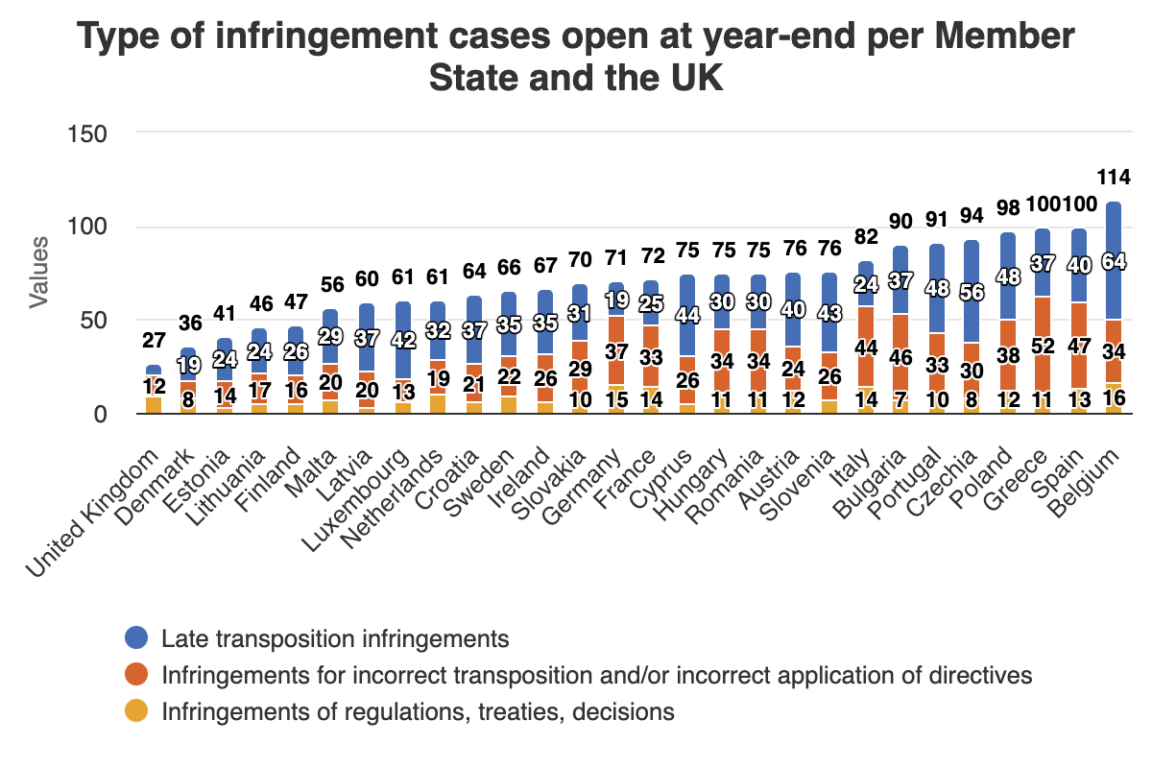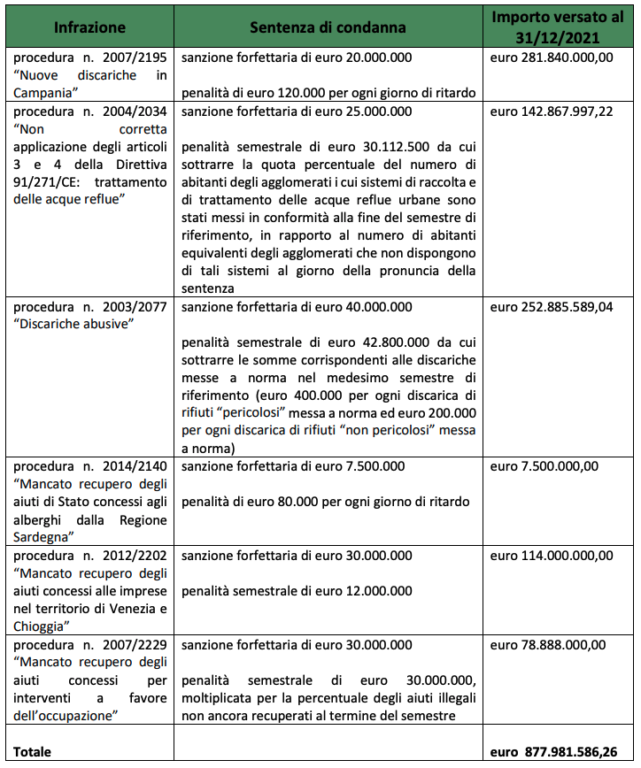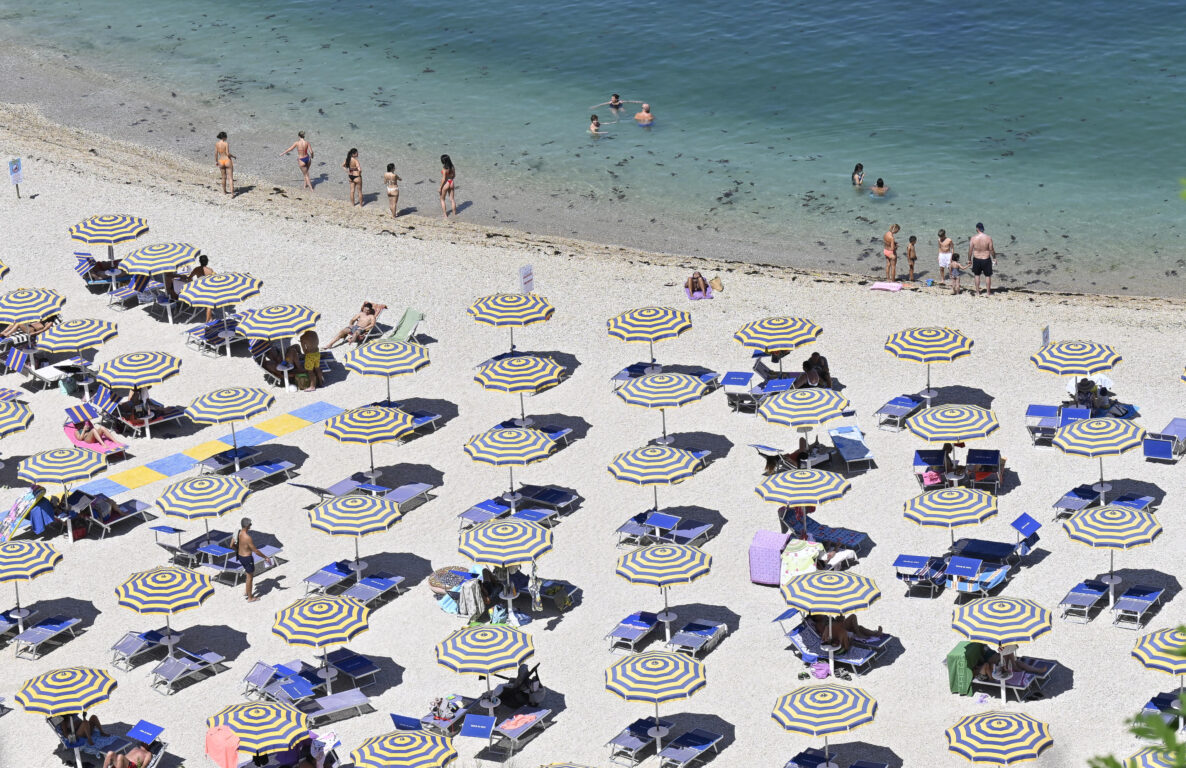A new infringement procedure and a referral to the Court of Justice of the European Union. This week, Brussels began criticizing Italy again on two issues that have remained unanswered for years: wastewater and air quality standards. In the March infringement proceedings package, the executive led by Ursula von der Leyen decided to refer the Italian government to the Court of Justice of the EU for non-compliance with certain collection and processing obligations wastewater provided for by the European directive. At the same time, the European Commission opened a new infringement procedure for exceeding daily concentration limits for air pollution. A subject that has been talked about a lot in recent weeks with a new smog alert affecting the Po Valley, currently the region with the worst air quality on the entire European continent.
What are infringement procedures
Air pollution and wastewater represent two issues on which Rome has long been in the crosshairs of European institutions. However, to understand the meaning of the EU intervention, we need to take a step back. What exactly do we mean by infringement procedure? It is one of the main tools with which the European Union can ensure that each Member State respects Community rules. This task of “safeguarding the treaties” is entrusted to the European Commission, which can initiate an infringement procedure for three different reasons: failure to communicate (if the Member State does not communicate in good time the measures chosen to implement a directive), failure to communicate apply (when the Member State does not align in practice with the indications of European legislation), incorrect application (when a European law is applied incorrectly by a Member State). The infringement procedure process is essentially divided into two phases. The first is pre-contested, in which the European Commission detects the violation of a rule and requests explanations or corrective measures from the member country. The second is that of litigation itself, in which the State is formally referred to the Court of Justice of the European Union, which is then called upon to determine whether it has actually violated a law and, if so, how much it will have to pay.

All procedures supported by Italy
According to data from the Department of European Affairs of the Presidency of the Council, as of February 7, 2024, there were 71 EU infringement procedures against Italy. Of these, 57 concern a violation of Union law and 14 the non-transposition of directives. The sector in which our country has the most difficulty complying with European standards is that of the environment: in this area, 18 infringement procedures are underway against Italy. Next come economic and financial affairs (8), labor and social policy (7), transport (7), competition and state aid (5), energy (5), home affairs ( 4), justice (3), foreign affairs. Business (2), Agriculture (2), Public procurement (2), Taxation and customs (2), Free movement of goods (2), Health (2), Freedom to provide services (1), Consumer protection (1) .
Fines of more than 800 million euros
A report presented to Parliament in April 2023 calculated that Italy, as of December 31, 2021, had paid 877.9 million euros in financial sanctions into the coffers of the European Union. Figures which refer to the six infringement procedures for which Italy has been condemned. The largest item of expenditure concerns the waste problem in Campania, for which our country has been ordered to pay the lump sum of 20 million euros. However, to this are added 120 thousand euros in penalties for each day of delay, which brings the total amount paid to the EU to 281.8 million euros (as of December 31, 2021). Then there is the problem of “illegal dumping”, which costs 252 million, and the mentioned issue of wastewater treatment, which presented a bill of 142.8 million. The European Commission's latest annual report on infringement procedures, presented last year and covering 2022, confirms the estimates presented to Parliament, but raises an additional alarm signal. In 2022, in fact, our country was eighth in the EU for open infringement procedures, but first (with Greece) for the most advanced procedures, that is to say the closest of the issuance of sanctions.

Italy's delays on the environment
Of the 71 infringement procedures opened against Italy, 18 concern the environment. One of the oldest problems concerns wastewater treatment. Brussels accuses the Italian government in particular of “lack of compliance” in 179 urban agglomerations, that is to say municipalities with more than 2,000 inhabitants. Despite “some progress” recognized in our country, the European executive maintains that the efforts made to overcome the problem of wastewater treatment have been “so far insufficient”. Hence the decision to bring Italy before the Court of Justice of the EU, which could impose a new fine of several million dollars. Another issue that has been in the crosshairs of the European Commission for some time is that of air pollution: both for the “systematic violation” of air quality standards in the Po valley (already noted in 2020 by the Court of Justice of the EU) that for the violation of the Industrial Emissions Directive by the former Ilva of Taranto. Then there are issues related to waste, on which Italy has been criticized for the presence of illegal dumping, and to marine and terrestrial habitats. On this last front, the European Commission launched two new infringement procedures against Italy last February. The first concerns the non-application of the Habitats Directive, due to failure to have put in place a monitoring system for the accidental capture and killing of protected species such as the bottlenose dolphin and the Caretta caretta turtle. In the second procedure, Italy is accused of not having respected certain articles of the birds directive, for example concerning the failure to ban ammunition containing lead in wetlands.
Seaside resorts, single allocation and other issues in the sights of Brussels
Besides environmental issues, there are other practices for which Brussels has criticized Italy in recent years. First and foremost: beach concessions. Last November, the European Commission opened an infringement procedure in which it accused Italy of violating the Bolkestein Directive, which requires public tenders for state maritime concessions. For now, it is simply a reasoned opinion, which will not necessarily end up before the judges of the Court of Justice of the EU. But Brussels is asking Rome to put an end to this anomaly as quickly as possible, which was also recently examined by the Court of Auditors due to the loss of revenue collected by the State. In 2022, seaside establishments paid 115 million euros in concessions, against a sector turnover which exceeded 30 billion. Also last November, the European Commission also challenged Italy's introduction of the single allowance. In this case, Brussels deemed “discriminatory” the double condition for obtaining the INPS subsidy, namely two years of residence in the country and cohabitation.

Cover photo: ANSA/Fabio Cimaglia | Ursula von der Leyen and Giorgia Meloni during an event at Farnesina (Rome, July 23, 2023)


